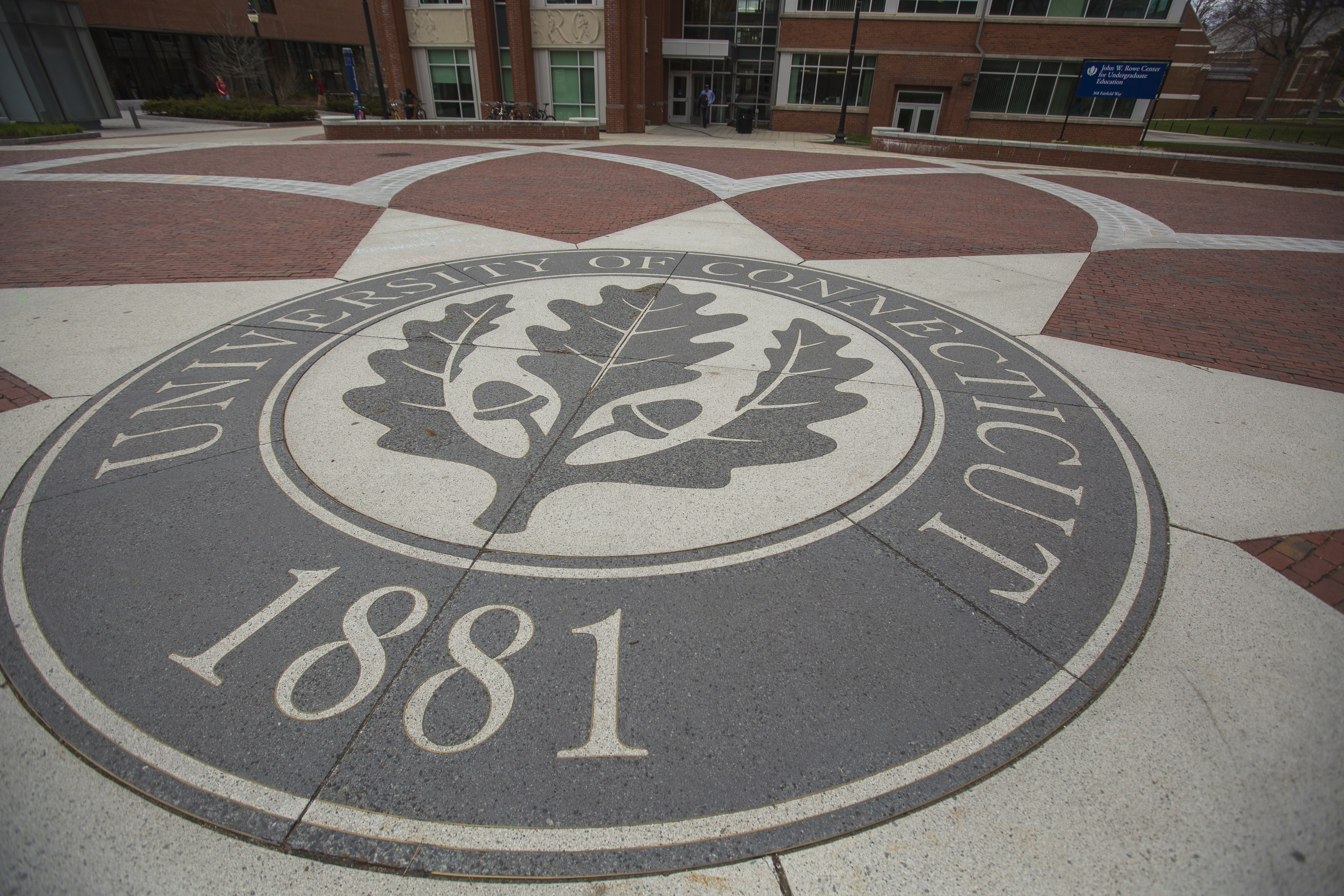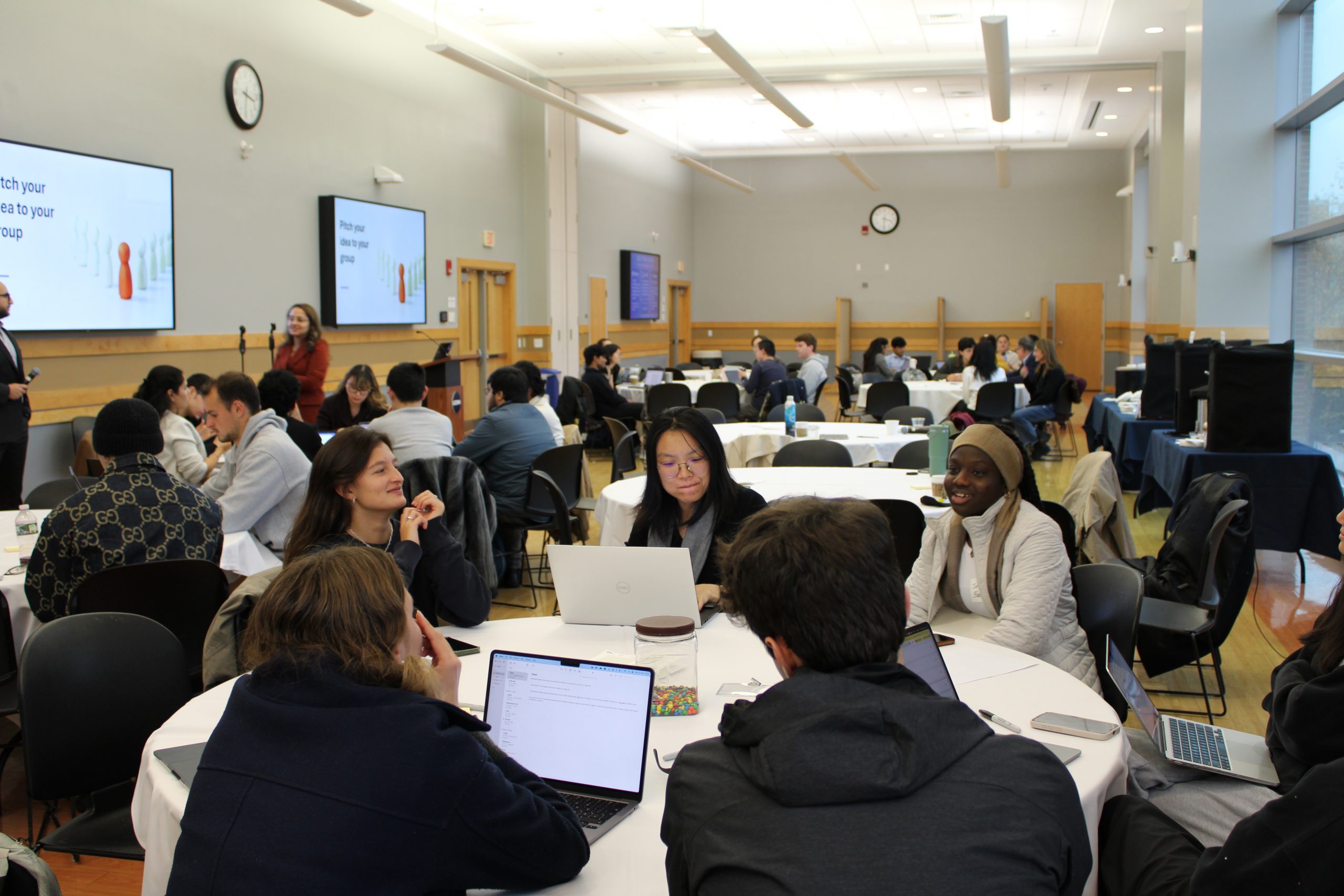Since January 2010, four engineering faculty members have received prestigious National Science Foundation Early Career (CAREER) Development Awards in diverse research areas. With these new grants, CAREER awards in the UConn School of Engineering total 28.
![]() Yong Wang, an assistant professor in the Department of Chemical, Materials & Biomolecular Engineering, will conduct research aimed at creating a new generation of tissue-like biomaterials using chemical and biomolecular engineering tools. Dr. Wang is working to create hydrogels (water insoluble polymer chains) that mimic the functionality of extracellular matrices (ECMs), the defining feature of animal connective tissue. These matrices provide cells with mechanical support and physical stimuli, emit soluble biochemical signals stimulating growth and other cell functions, and interact with cell receptors located on the surface of surrounding cells. At the heart of the project is a process known as biomolecular recognition, which enables and regulates diverse functions within and among cells.
Yong Wang, an assistant professor in the Department of Chemical, Materials & Biomolecular Engineering, will conduct research aimed at creating a new generation of tissue-like biomaterials using chemical and biomolecular engineering tools. Dr. Wang is working to create hydrogels (water insoluble polymer chains) that mimic the functionality of extracellular matrices (ECMs), the defining feature of animal connective tissue. These matrices provide cells with mechanical support and physical stimuli, emit soluble biochemical signals stimulating growth and other cell functions, and interact with cell receptors located on the surface of surrounding cells. At the heart of the project is a process known as biomolecular recognition, which enables and regulates diverse functions within and among cells.
 The CAREER research of Yufeng Wu, an assistant professor of Computer Science & Engineering, is aimed at developing efficient algorithms that will enable accurate inferences to be made from massive data collected in population genomics studies. Dr. Wu’s research will build upon his ongoing work involving the development of algorithms that will yield insights into the origin and manifestations of genomic traits and the construction of more accurate biological models. For his CAREER research, he is applying combinatorial optimization techniques and probabilistic models to improve the speed and accuracy of high-throughput gene sequencing, with a focus on computational population genomics. Dr. Wu plans to develop new computational methods for analyzing large amounts of high-throughput gene sequencing data from individuals both affected and not affected by a given, highly complex trait, such as Down Syndrome.
The CAREER research of Yufeng Wu, an assistant professor of Computer Science & Engineering, is aimed at developing efficient algorithms that will enable accurate inferences to be made from massive data collected in population genomics studies. Dr. Wu’s research will build upon his ongoing work involving the development of algorithms that will yield insights into the origin and manifestations of genomic traits and the construction of more accurate biological models. For his CAREER research, he is applying combinatorial optimization techniques and probabilistic models to improve the speed and accuracy of high-throughput gene sequencing, with a focus on computational population genomics. Dr. Wu plans to develop new computational methods for analyzing large amounts of high-throughput gene sequencing data from individuals both affected and not affected by a given, highly complex trait, such as Down Syndrome.
 Antibodies – the specialized proteins responsible for identifying and routing out disease – are the subject the CAREER award of Tai-Hsi Fan, an assistant professor of Mechanical Engineering. Dr. Fan’s research centers on the development of an accurate predictive model depicting how monoclonal antibodies clump together during manufacture, delivery or storage. Monoclonal antibodies are the key component rendering pharmaceutical drugs effective in combating disease. But when this aggregation occurs, it impairs the ability of antibodies to bind with antigens, reducing the effectiveness of the disease-fighting drugs. If researchers can better understand this aggregation behavior, drug manufacturers may be able to prevent it from occurring, thus extending the functional life of the drugs. Dr. Fan said that overcoming the aggregation hurdle may yield billions of dollars in health care cost savings and improve widespread access to the life-saving medicines particularly in developing countries.
Antibodies – the specialized proteins responsible for identifying and routing out disease – are the subject the CAREER award of Tai-Hsi Fan, an assistant professor of Mechanical Engineering. Dr. Fan’s research centers on the development of an accurate predictive model depicting how monoclonal antibodies clump together during manufacture, delivery or storage. Monoclonal antibodies are the key component rendering pharmaceutical drugs effective in combating disease. But when this aggregation occurs, it impairs the ability of antibodies to bind with antigens, reducing the effectiveness of the disease-fighting drugs. If researchers can better understand this aggregation behavior, drug manufacturers may be able to prevent it from occurring, thus extending the functional life of the drugs. Dr. Fan said that overcoming the aggregation hurdle may yield billions of dollars in health care cost savings and improve widespread access to the life-saving medicines particularly in developing countries.
 Lei Wang, assistant professor of Electrical & Computer Engineering, is applying his CAREER support toward research aimed at enhancing the sustainability of cyber-aquatic systems used, for example, in marine ecosystem observation, pollution monitoring, coastline protection, disaster prevention, and national security surveillance. Dr. Wang’s project involves several challenges relating to cyber-aquatic systems, which rely upon dedicated digital signal processors (DSP) for the real-time sensing, computing, communication and control functions. He explained that DSPs pose significant challenges for sustainable signal processing in underwater applications, due to the high communication costs and a limited supply of steady, reliable energy in the corrosive underwater environment.
Lei Wang, assistant professor of Electrical & Computer Engineering, is applying his CAREER support toward research aimed at enhancing the sustainability of cyber-aquatic systems used, for example, in marine ecosystem observation, pollution monitoring, coastline protection, disaster prevention, and national security surveillance. Dr. Wang’s project involves several challenges relating to cyber-aquatic systems, which rely upon dedicated digital signal processors (DSP) for the real-time sensing, computing, communication and control functions. He explained that DSPs pose significant challenges for sustainable signal processing in underwater applications, due to the high communication costs and a limited supply of steady, reliable energy in the corrosive underwater environment.



